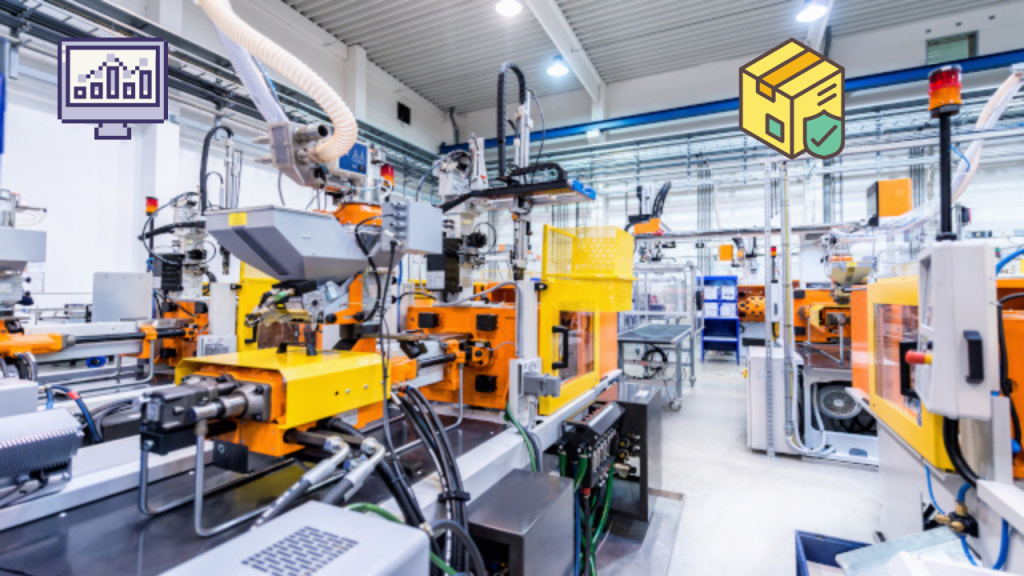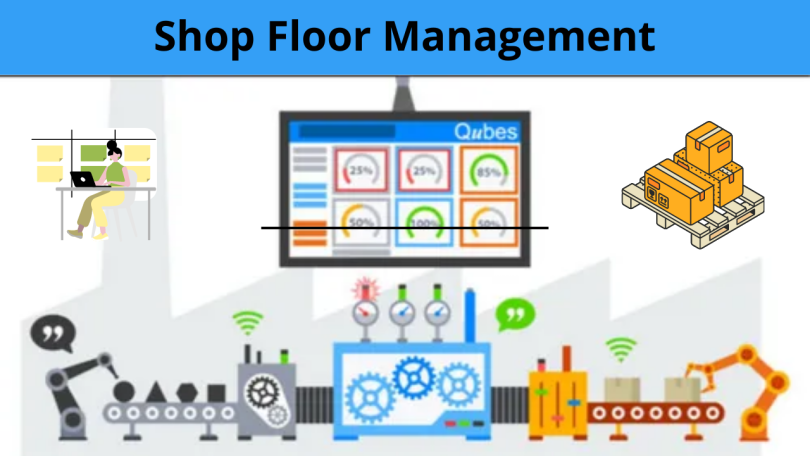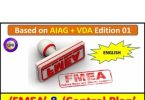The term “shop floor” refers to the physical space within a manufacturing facility or factory where the actual production and assembly of goods take place. It is the operational hub where workers, machines, equipment, and materials come together to transform raw materials into finished products. The shop floor is typically characterized by its layout, machinery, assembly lines, workstations, and storage areas.
Shop floor management, also known as floor-level management, is a set of practices and strategies aimed at optimizing the efficiency, productivity, and overall performance of the shop floor. It involves the coordination and control of various activities, resources, and personnel to ensure smooth operations and timely production.
At the core of shop floor management is the concept of lean manufacturing, which emphasizes minimizing waste, improving quality, and maximizing value. Lean principles, such as continuous improvement, standardized work, visual management, and employee empowerment, are applied to enhance productivity and eliminate inefficiencies. The goal is to create a streamlined and flexible production environment that can quickly adapt to changing customer demands.

Shop floor management is the process of managing the activities that take place on the production floor of a manufacturing facility. It involves overseeing and controlling the production process, ensuring that all resources are used efficiently and effectively, and maintaining a safe and productive work environment.
One of the key aspects of shop floor management is production planning and scheduling. This involves determining the most efficient sequence of operations, allocating resources effectively, and setting realistic production targets. By carefully planning and scheduling production activities, manufacturers can minimize downtime, reduce bottlenecks, and optimize the utilization of machines and labor.
Another crucial component of shop floor management is quality control. It involves implementing rigorous quality standards, conducting inspections and tests, and ensuring that products meet or exceed customer expectations. Quality control measures can include statistical process control, visual inspections, and the use of quality management tools and techniques to identify and address any deviations or defects in the production process.
Furthermore, effective communication and collaboration are essential in shop floor management. Regular meetings, visual displays, and real-time information sharing help create a culture of transparency, teamwork, and accountability. This enables operators, supervisors, and managers to work together in identifying issues, solving problems, and making data-driven decisions to improve performance.
Technology also plays a significant role in modern shop floor management. Manufacturing execution systems (MES) and other digital tools are used to monitor and control production processes, track inventory, collect real-time data, and provide performance analytics. These technologies enable better visibility and decision-making, allowing for proactive adjustments and optimizations.
For an executive in a manufacturing company, there are several benefits of doing a shop floor management course, including:
- Improved productivity: By understanding the principles of shop floor management, an executive can identify opportunities for process improvement, reduce waste, and increase efficiency, leading to improved productivity.
- Enhanced safety: Shop floor management courses also cover safety procedures and best practices, allowing executives to implement safety protocols that prevent accidents and injuries, and maintain a safe working environment.
- Better communication: Effective communication is crucial in any manufacturing facility. A shop floor management course can help executives develop communication skills that enable them to convey information more clearly and accurately, leading to better collaboration among team members.
- Reduced costs: Efficient use of resources is a critical aspect of shop floor management. By learning how to optimize resources, an executive can help reduce costs, improve profitability, and stay competitive in the market.
- Improved leadership: Shop floor management courses also cover leadership skills, enabling executives to lead their teams more effectively, motivate employees, and foster a culture of continuous improvement.
Overall, a shop floor management course can provide an executive with the tools and knowledge necessary to manage the production process more effectively, leading to increased productivity, reduced costs, and improved profitability.
CERTIFICATION PROGRAM ON, “Shop Floor Management” (SFM)
Description
Shop floor operations, inventories, equipment, and personnel are all managed under shop floor management. Specifically, pre-planning, planning, staffing, directing, monitoring, and controlling operations that improve shop efficiency and analysis are included.
Increased productivity and operational efficiency are made possible by arming oneself with knowledge of these systems and procedures. This is accomplished by the use of knowledge in the standardization of operations, which opens the way to reduce the occurrence of work errors and identify gaps in production or procedures. This generally has a beneficial effect on the company’s revenue.
Benefits
- Understand different aspects of the shop floor and its management.
- Better manage the processes
- High level of motivation
- Better Job prospective
- Improvement in productivity
- Better housekeeping
- Better employee engagement
Who Should Attend?
- All personnel/team members are directly involved in production activity.
- Employees engaged in shop floor handling internal complaints & supplier complaints
- Employees engaged in handling customer complaints
- Line supervisors, Line in charge, Associates
- Anybody eager of learning and enhance his knowledge in this domain
- Students
We are recommending you following courses as the next step for your professional and career growth:
Other Related Blogs
Related link
- “5S Expert Certification Program”
- KAIZEN Expert
- Certified ‘Lean Expert – Silver Level’ – Level 2
- Certified ‘Lean Expert – Gold Level’ – Level
- Total Quality Management (TQM)
- Basics of Lean Manufacturing & Toyota Production System (TPS)
For details of program content, you may visit courses.qualityhubindia.com
Feel free to reach us at +91 7073111630/ 8094078781 for any query or drop us a mail at [email protected].








